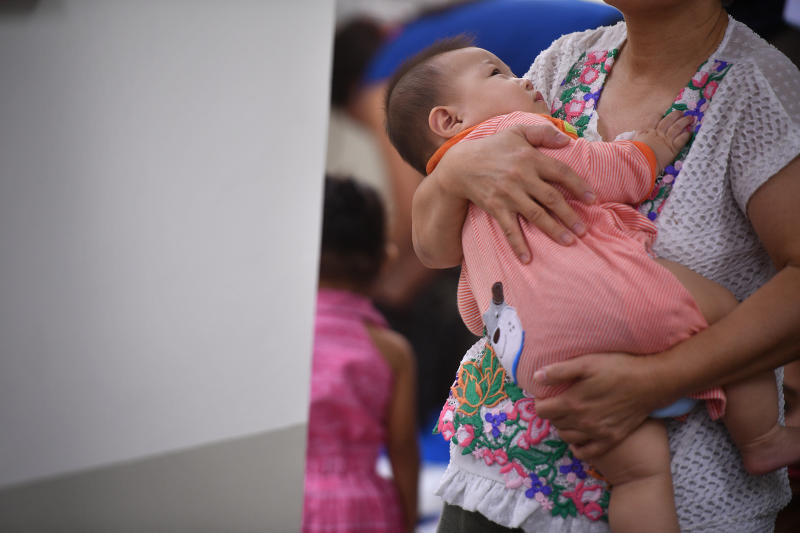Daily stress not in the way of baby plans, study says
Sign up now: Get ST's newsletters delivered to your inbox

The spotlight on reproductive issues comes as many countries face an impending crisis of lower birth rates.
PHOTO: ST FILE
Follow topic:
Hong Kong - The stress individuals face on a daily basis does not hinder a couple's plans to have babies, an Australian study that looked at common stress factors showed.
Professor William Ledger, an Australian fertility specialist, pointed out that everyday stress such as work pressure, relationship issues, family or financial considerations, should not be confused with extreme stress.
Extreme stress, he says, can cause erectile dysfunction in men and failure to ovulate in women.
The study analysed data from Britain where the stress levels of participants were charted through questionnaires and measurement of stress hormones.
Of the 210, 77 conceived.
"There was no significant difference in the measured stress levels in the women who became pregnant and those who did not," said Prof Ledger, who is head of obstetrics and gynaecology at the University of New South Wales.
So radical lifestyle changes or a move to a more relaxed routine may not actually deliver the conception couples so desperately desire, the study said.
Prof Ledger urged couples trying to conceive naturally to maintain healthy lifestyles and enjoy sex at the optimal time each month for the best chance.
Couples in their 30s and 40s should consider options such as in-vitro fertilisation (IVF) if they are having trouble getting pregnant.
Globally, one in six couples experiences infertility, defined as failure to conceive after a year of unprotected sex, or the inability to carry pregnancies to a live birth.
Scientists and doctors have said many complex factors contribute to this trend including later marriages, growing urbanisation and associated stress levels, work pressures and environmental conditions.
Prof Budi Wiweko, president of the Asia Pacific Initiative on Reproduction (Aspire), a group comprising experts in assisted reproduction in over 20 countries in the region, said the first IVF baby was born 40 years ago.
The spotlight on reproductive issues comes as many countries face the impending crisis of lower birth rates.
Ms Ivy Teh, global managing director of the Economist Intelligence Unit's healthcare consulting, said at the Aspire conference in Hong Kong that women in the region are not giving birth to enough babies to sustain population levels.
Globally, the average population replacement rate is 2.1.
In Singapore, the total fertility rate plummeted from 1.82 in 1980 to an eight-year low of 1.14 in 2018.
Hong Kong has been singled out by experts as having one of the lowest fertility rates in the world. Provisional government data show that the total fertility rate in 2018 slid to 1.07 from 1.125 in 2017.
In China, this has fallen to 1.65, while in Japan it is 1.46.
Fast-developing South-east Asian economies like Vietnam and the Philippines are also showing rapid declines in total fertility rates.
If the trends do not change, there will be a "severely diminishing workforce" and family stress will rise, as the smaller, younger generation supports a larger number of retirees, said Ms Teh.
The gloomy outlook can be improved by rolling out more family friendly policies, including broader parental leave entitlements, subsidised childcare and better work-life balance initiatives, along with financial incentives and easier access to assisted reproductive technologies such as IVF, scientists and doctors agreed.
"Cost benefit analyses of assisted reproductive technology and family policy interventions suggest that, over a lifetime, public spending on fertility and family support is an investment rather than a cost."
"The situation with falling fertility will always be prone to discounting, but the threat of continuous rapid fall is an existential issue, particularly in Japan where the population is projected to fall from 129 million in 2006 to 108 million in 2050," said Ms Teh.
Some 1,700 fertility specialists from 50 countries had gathered at the Aspire 2019 Congress in Hong Kong last weekend (May 2-5) to explore the latest developments in human reproduction.

